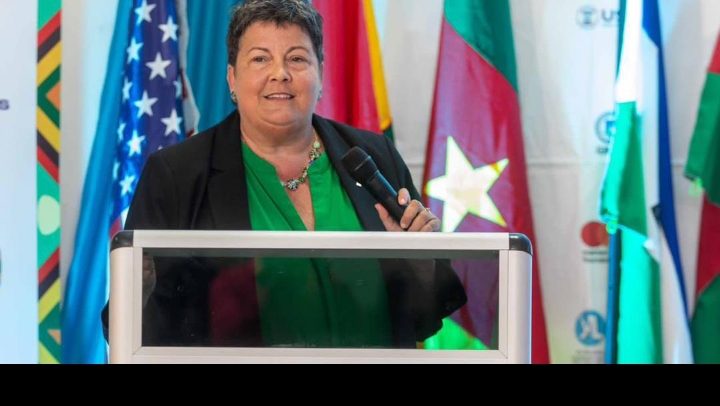
Barring a rapprochement between Ghana and the US, the visa sanctions imposed over claims that Ghana is refusing to facilitate the deportation of its citizens from the US, will take effect from today.
The US has escalated a misunderstanding with Ghana over the deportation of about 7,000 Ghanaian that she claims Ghana must take responsibility for, and, facilitate their return back home.
Last Thursday, the US Department of Homeland Security and the State Department, issued a statement announcing visa restrictions for some category of persons and threatened to expand the scope to cover other citizens.
"The government of Ghana has denied or reasonably delayed accepting their nationals ordered removed from the United States. As a result, Secretary of State Pompeo has ordered Consular officers in Ghana to implement visa restrictions on certain categories of visa applicants" the statement said.
But the Ministry of Foreign Affairs and Regional Integration in response, expressed disappointment with the US decision and described the claims as unfounded and that the sanctions are without any justification.
The war of words coming from the two countries clearly depicts signs of cracks in diplomatic relations between the two countries.
The Ghanaian Times saw the sanctions and is not surprised at the development because the US had threatened since last year, to sanction Ghana for non-cooperation in the deportation of Ghanaians from the US.
It is regrettably though that, the US has started implementing the sanction when Ghana had all along insisted that as a sovereign country, it had the duty and would continued to protect her nationals all over the world by ensuring that appropriate processes were undertaken in issues relating to the deportation of her citizens from other countries.
According to the government, Ghana had always cooperated with the US authorities in the processing and removal of Ghanaian citizens who had been cited for deportation from the US to Ghana.
It is, therefore, befuddling that the US government would go ahead to implement sanction against Ghana although she has cooperated with the US all along.
We are not against the US government enforcing its laws against illegal migration but we are worried about the burden the country has to carry when she had little or no hand in sending the deportees to the US in the first place.
What is worrying is that, the US has threatened that the scope of the sanctions may be expanded to the wider population much against clear evidence that Ghana continues to play her part in resolving the matter.
That is why we support the view of commentators that Ghana's treatment by the US government appears to be harsh.
According, a report quoting CNN, the US Immigration Enforcement reported that, the number of deportees refused by Ghana was much lower than other countries sanctioned for the same infraction.
The report further quotes Sara Pierce, an analyst with the Migration Policy Institute as saying that sanctions for refusing to accept deportees were on the rise by the current US administration.
She noted that before President Donald Trump, the US had sanctioned only two countries over repatriation conflicts, but seven countries were under sanction now for failing to accept deportees.
In the case of Ghana, analysts have established that its case is not as grave as others and do not deserve to be sanctioned so why were we sanctioned.
We urged the two governments to get back to the negotiating table, since the two countries have already expressed the willingness to meet to find a lasting solution to the problem.
Ghana and the US must not allow the present differences to degenerate into a diplomatic spar that would mar the good relationship that has existed between the two countries for decades.
Read Full Story





















Facebook
Twitter
Pinterest
Instagram
Google+
YouTube
LinkedIn
RSS